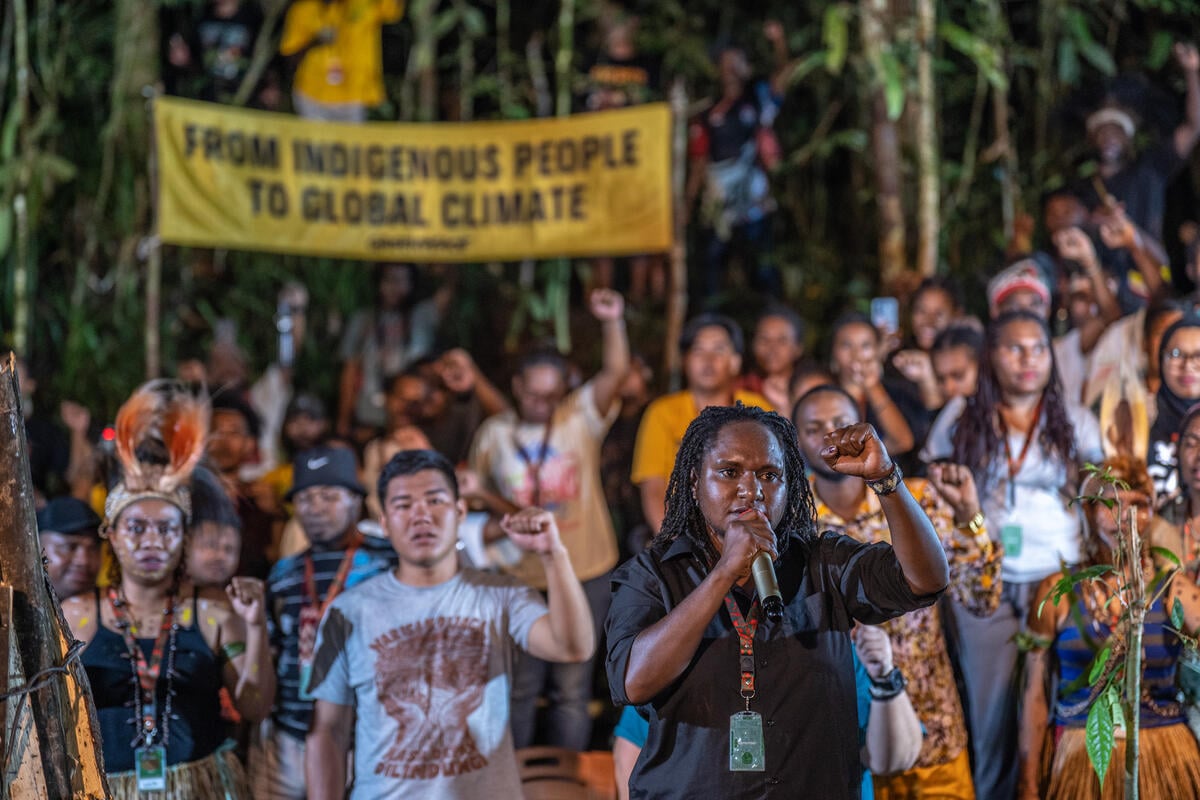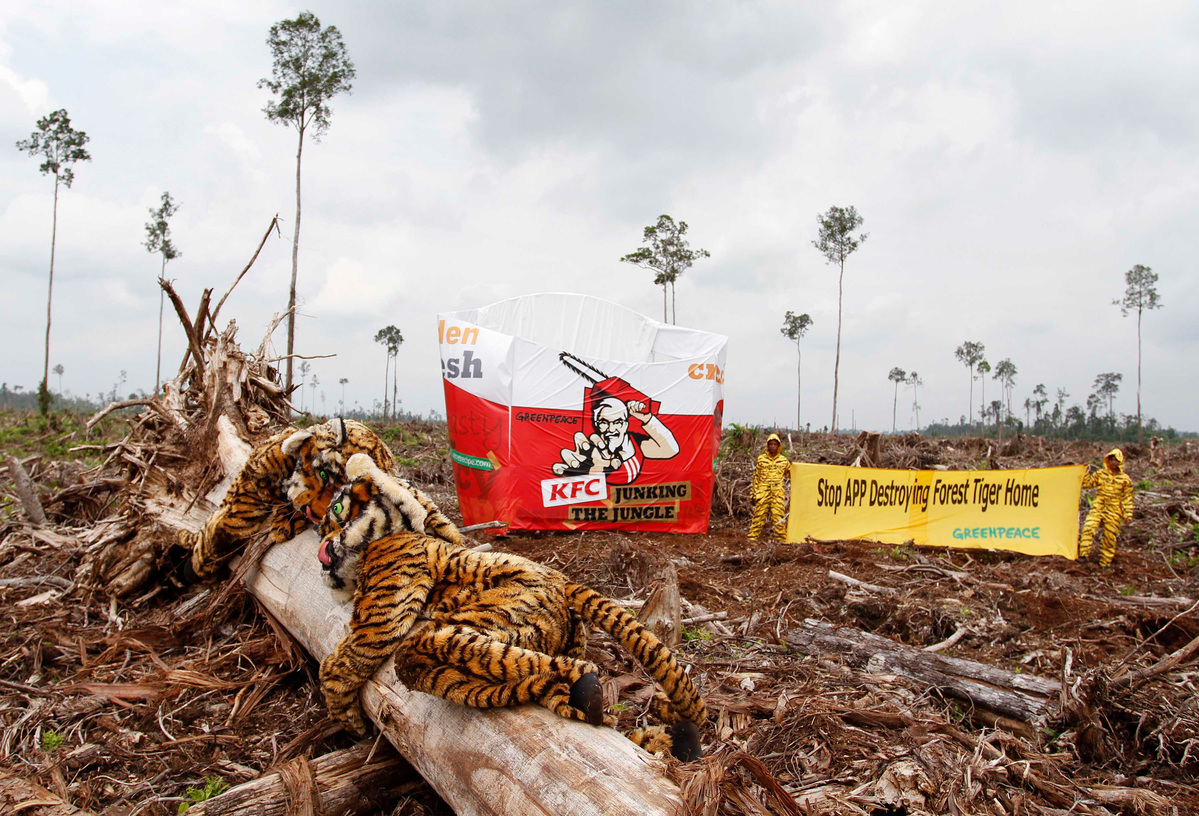Jakarta, 12 July 2023. When Gergorius Yame and Hendrikus Woro packed their bags to travel from West Papua to take the stand in a Jakarta courtroom, they brought items of evidence in the form of customary forest products – loincloths, motu bark bags, Nibung tree fronds and sago. The pair of Auyu Indigenous men are representing their community’s struggle over their forestland home by officially intervening in legal proceedings taken by two palm oil companies in the Jakarta State Administrative Court.
The forest products shown during yesterday’s hearing served as evidence of the ongoing importance of ancestral forests in the daily lives of the Auyu People:
“We have so many uses for the Nibung tree, without even going into all the other forest species. Nibung frond spines are woven into mats; we eat the shoots as vegetables and ‘Papuan salt’. The bark can be used as cough medicine, the trunks make up the floors of our houses, and we use the leaves for lining bivouacs and wrapping up sago,” said Hendrikus Woro.
Hendrikus also told the court about clan relations within the Auyu People, depicted in the results of participatory mapping of the boundaries of their customary territories. Transcribing the boundaries onto maps that could be shared with outsiders, according to Hendrikus, was necessary because of the intrusion of two palm oil companies threatening their Indigenous lands and forests – PT Megakarya Jaya Raya and PT Kartika Cipta Pratama.
When it was Gergorius Yame’s turn to speak, he told of the pristine water resources the Auyu People rely on. “Every time we travel deep into the forest we don’t need to boil water to carry along with us, we can just collect river water and drink it safely straight like that. We are worried that if oil palm plantations are cut into the forest, they will pollute and damage our river, in the same way we have already seen the Digoel River being destroyed by oil palm plantations,” he said.
The two companies PT MJR and PT KCP, whose concessions are located side by side in South Papua Province (part of the area known internationally as West Papua), are suing the Minister of Environment and Forestry over changes to forest release permits that purport to give them access to Auyu land. Greenpeace International has applied its standard methodology as set out in ‘Shining Light on the Shadows’ to investigate these two companies, and believes the weight of evidence is sufficient to conclude that the Hayel Saeed Anam Group and its ultimate beneficial owners, members of the Hayel Saeed family, have been and may still be linked to these concessions.[1] As many as 8,828 hectares of forest land belonging to Indigenous peoples have been cleared by the holders of the two concessions, but there are 65,415 hectares of rainforest that can still be saved.
“Today’s trial has seen enough evidence to disprove the pretence that Papua’s forests are ‘tanah kosong’, or terra nullius. These vast oil palm plantations have the potential to violate the rights of Indigenous Peoples while destroying precious forests and biodiversity. This litigation is part of the Auyu People’s efforts to confirm their position as owners of customary forest, and enforcing their exclusive right to manage the forest,” said Greenpeace Indonesia’s Sekar Banjaran Aji, acting as one of the Auyu’s legal team.
Note to editors:
Photos of the trial and peaceful demonstration are available for media use.
[1] See further details including links to HSA’s statements on this issue on pp.80-82 of Greenpeace International’s Final Countdown report.
Contact:
Igor O’Neill, Greenpeace Indonesia, [email protected] +61-414-288-424
Tigor Gemdita Hutapea, Pusaka Foundation +62 812-8729-6684
Sekar Banjaran Aji, Greenpeace Indonesia +62 812-8776-9880



